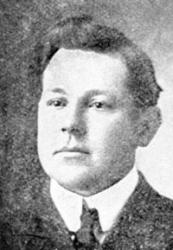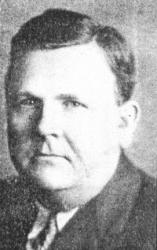1647 - 1699 Person Name: J. F. Hertzog Hymnal Number: 89 Author of "In mercy, Lord, remember me" in Crowning Hymns No. 8 Hertzog, Johann Friedrich, LL.D., son of Johann Hertzog, diaconus of the Church of the Holy Cross, in Dresden, was born at Dresden, June 6, 1647. After the completion of his legal studies at the University of Wittenberg, he was, from 1671 to 1674, tutor to the sons of General-Lieutenant von Arnim. In 1674 he returned to Dresden to practise as an advocate, where he died March 21, 1699 (Koch, iii. 361-63; Allgemeine Deutsche Biographie, xii. 251). The only hymn by him which has been translated into English is:—
Nun sich der Tag geendet hat, Und keine Sonn mehr scheint. [Evening.] Fischer, ii. 129, says that, according to the testimony of Hertzog's brother, this hymn was written one evening in 1670 while the author was still a student at Wittenberg. Stanza i. and the melody appear as No. 8 in the 1 Zehen of A. P. Krieger's News Arien. In 6 Zehen, Dresden, 1667 [Leipzig Town Library]. Hertzog seems to have adopted this stanza and added eight others, the form in 9 st. being found in Luppius's Andächtig Singender Christen-Mund, Wesel, 1692, p. 123, in 9 stanzas. Included as No. 622 in Freylinghausen's Geistreiches Gesang-Buch, 1704, with a 10th st., which, according to Fischer, first appeared in the Leipzig Gesang-Buch, 1693. Also in the Unverfälschter Liedersegen, 1851, No. 530. It speedily became popular, was often imitated, and still holds its place as one of the best German evening hymns. The translations in common use are:—
1. And now another day is gone. A good translation, omitting st. vii., by J. C. Jacobi in his Psalter Germanica, 1722, p. 1ll (ed. 1732, p. 174, altered). St. vii., "With cheerful heart I close my eyes," while parallel with the German is really stanza iv. of Watts's "And now another day is gone," in his Divine and Moral Songs. The 1732 text, slightly altered, is No. 479 in pt. i. of the Moravian Hymn Book, 1754, and stanzas i.-iii., vii., ix. altered are No. 391 in J. A. Latrobe's Collection, 1841. The form principally used is a cento beginning, "In mercy, Lord, remember me"; and being stanzas iii., vii., ix., x. slightly altered as No. 760 in the Moravian Hymn Book, 1789, and repeated, omitting st. x., in later editions (1886, No. 1183). This cento has recently been included in Windle's The Church Psalter & Hymn Book, 1862, in Dr. Thomas's Augustine Hymn Book, 1866, Dr. Martineau's Hymns of Praise & Prayer, 1873; and in America in the Methodist Episcopal Hymn Book, 1849; Hymns for the Church of Christ, Boston, 1853, &c.
2. And now another day is past. A version of stanzas i.-iv., vii.-ix., based on Jacobi, is found as No. 494 in the Appendix to the American German Reformed Psalms & Hymns, 1834, and also in the American Lutheran General Synod's Hymn Book, 1850.
3. The shades of night have banished day. A full and very good translation by Miss Dunn in her Hymns from the German, 1857, p. 16. Included, slightly altered and omitting stanzas vi., viii., in the Uppingham & Sherborne School Hymn Book, 1874, and thence in Thring's Collection, 1882.
4. Now that the sun doth shine no more. A good translation omitting stanzas iv., vi., x., by Miss Winkworth in her Chorale Book for England, 1863.
5. The day is done, the sun is set. A translation of stanzas i.-iii., vii., marked as by F. C. C, as No. 176 in Dr. Pagenstecher's Collection, 1864.
6. Since now the day hath readied its close. In full as No. 311 in the Ohio Lutheran Hymnnal, 1880, marked as a compilation.
Other translations are: (1) "The waning day hath reached its close," by H. J. Buckoll, 1842, p. 84. (2) "The day is gone, and now no more," by Dr. G. Walker, 1860, p. 61. (3) "Now that the day from earth hath crept," by Miss Manington, 1863, p. 136. [Rev. James Mearns, M.A.]
--John Julian, Dictionary of Hymnology (1907)
Johann Friedrich Herzog


 My Starred Hymns
My Starred Hymns






